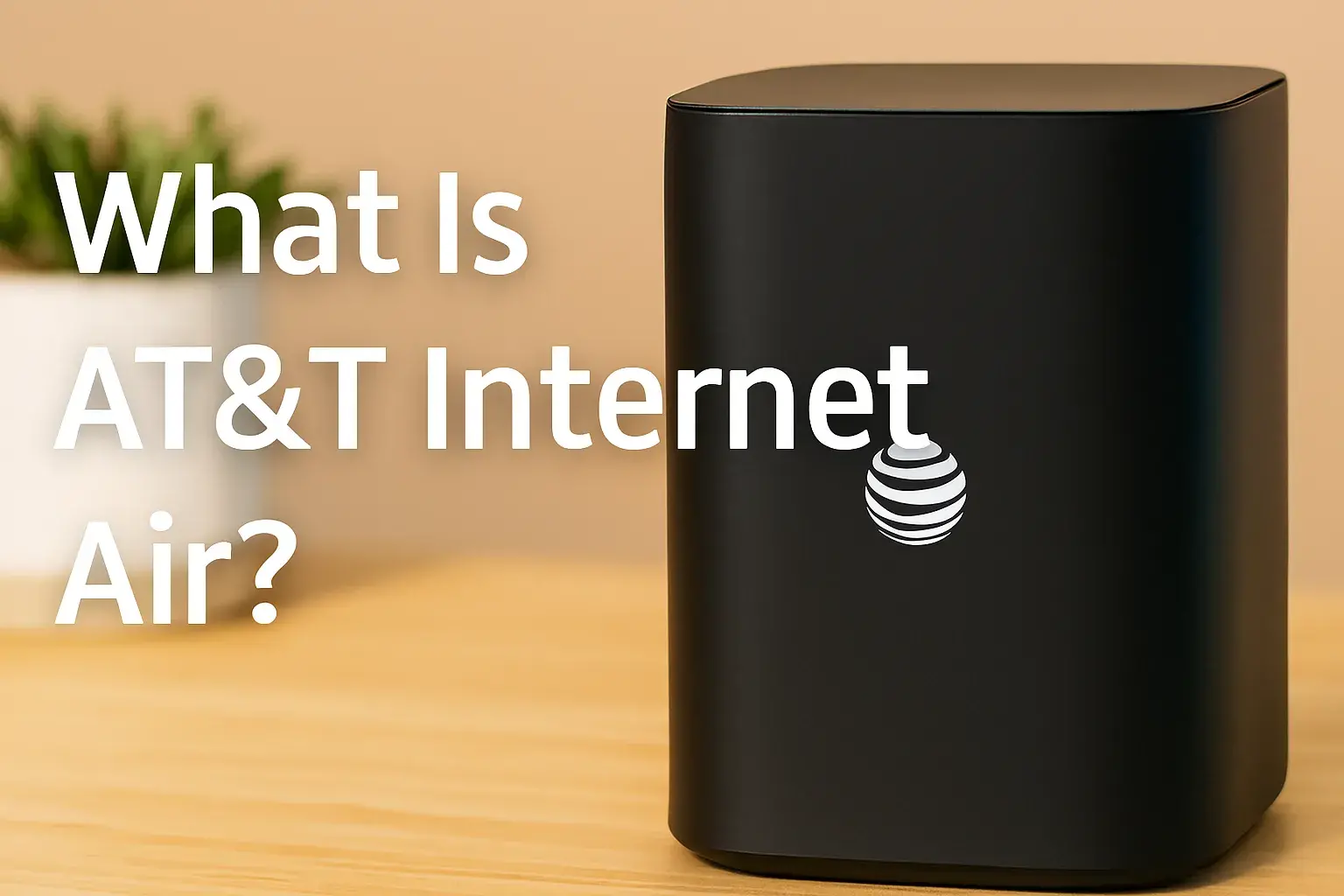Will AT&T charge me if I cancel?

Navigating the complexities of service contracts can be daunting, especially when considering cancellation. This guide directly addresses the question: "Will AT&T charge me if I cancel?" We'll break down potential fees, explore different service types, and offer strategies to minimize or avoid these charges, empowering you with knowledge for informed decisions in 2025.
Understanding AT&T Cancellation Fees
The short answer to "Will AT&T charge me if I cancel?" is: it depends. AT&T, like most major telecommunications providers, structures its pricing and contracts with the expectation of customer retention. When a customer decides to leave before the agreed-upon term, AT&T may incur costs associated with acquiring that customer and providing service, which they aim to recoup through various means, including early termination fees (ETFs). Understanding these fees is crucial for anyone contemplating a switch.
The Role of Contracts and Commitments
Historically, AT&T, particularly for its wireless services, relied heavily on long-term contracts, typically 1-2 years. If you cancel your service before the contract expires, you are breaking the agreement, and AT&T is within its rights to charge you a penalty. These contracts were designed to lock in customers and offset the initial costs of providing new devices, network access, and promotional offers. While contract lengths have become more flexible in recent years, the concept of commitment still underpins many service plans.
In 2025, AT&T's approach has evolved. Many wireless plans are now "month-to-month" with no fixed contract term. However, this doesn't mean there are no potential charges. The key difference lies in how these charges are structured. Instead of a direct early termination fee, the costs are often tied to device financing. If you received a subsidized phone or a device purchased on an installment plan, and you cancel service, the remaining balance on that device typically becomes due immediately.
Early Termination Fees (ETFs) - The Traditional Model
For older plans or specific bundled services, you might still encounter a traditional ETF. These fees are usually a set amount that decreases over the contract term. For instance, a 2-year contract might have an ETF that starts at $200 and reduces by a certain amount each month of service. By the time you're halfway through your contract, the ETF would be lower than at the beginning.
Example: A 2-year contract with an ETF of $150, reducing by $12.50 per month. If you cancel after 6 months, the ETF would be $150 - (6 * $12.50) = $150 - $75 = $75.
It's important to check your specific service agreement to understand if your plan is subject to an ETF and what the current amount is. AT&T's website or your account portal should provide this information.
Device Payment Plans and Remaining Balances
This is the most common scenario in 2025 for wireless cancellations. AT&T often offers attractive deals on smartphones and other devices when you sign up for a new service plan. These deals frequently involve financing the device over 24 or 36 months. While you're paying off the device, you're also making monthly payments that are separate from your service charge.
If you cancel your AT&T service while still paying off your device, the outstanding balance on that device becomes immediately due. This isn't technically an "early termination fee" for the service itself, but it's a significant charge you'll face upon cancellation.
Example: You bought a new smartphone for $900 on a 36-month installment plan. Your monthly device payment is $25 ($900 / 36). If you cancel service after 12 months, you've paid $300 ($25 * 12). The remaining balance of $600 ($900 - $300) will be due on your final bill.
Bundled Services and Potential Penalties
AT&T offers a range of services, including internet, TV (via DIRECTV, which is now a separate entity but often bundled in promotions), and wireless. When these services are bundled, cancellation of one service might impact the pricing or terms of others. In some cases, canceling a bundled service might result in the remaining services reverting to their standard, non-promotional rates, which are usually higher. While not a direct cancellation fee, this can lead to unexpected increases in your monthly bills.
Furthermore, some bundled packages might have specific early termination clauses that apply if you break the bundle agreement prematurely. Always review the terms and conditions of any bundled package you sign up for.
Types of AT&T Services and Their Fees
The likelihood and nature of cancellation charges vary significantly depending on the specific AT&T service you are using. Understanding these differences is key to predicting your potential costs.
AT&T Wireless Service
As discussed, wireless plans in 2025 are largely contract-free for service duration. The primary financial implication of cancellation comes from outstanding device payments.
- No Contract, Device Financing: Most common. You'll owe the remaining balance on your financed phone or other devices.
- Older Contract Plans: If you are on an older 2-year contract, you may still be subject to an Early Termination Fee (ETF). Check your contract terms.
- Promotional Offers: Some promotions might have specific terms tied to service length. For example, if you received a significant discount on service for the first year, canceling before that year is up could mean forfeiting the discount and potentially incurring a pro-rated charge for the remaining promotional period.
Key takeaway for wireless: The main charge is usually the device balance, not a penalty for ending service itself, unless you're on a legacy contract.
AT&T Internet (Fiber & DSL)
AT&T Internet services, including their high-speed fiber offerings, often come with a contract term, typically 12 months, to secure promotional pricing.
- Contractual Agreements: If your internet plan has a contract, canceling before the term ends will likely incur an ETF. This fee is usually a fixed amount, often around $150, that might decrease over time.
- No-Contract Options: AT&T also offers internet plans without a contract. In these cases, there is generally no ETF. However, you might still be responsible for any unreturned equipment (like modems or routers) if they were leased from AT&T.
- Equipment Charges: Whether on a contract or not, if you were provided with AT&T equipment (modem, router, gateway) and fail to return it in good condition, you will be charged the full retail price for that equipment.
Example: You signed up for AT&T Fiber on a 12-month promotional contract with a $150 ETF. If you cancel after 4 months, you'll likely pay the $150 ETF plus any outstanding service charges. If you had a no-contract plan and rented a gateway for $15/month, canceling means you'll pay for the gateway until it's returned, or its full replacement cost if not returned.
AT&T TV (U-verse TV & DIRECTV)
AT&T's television services, historically U-verse and now largely represented by DIRECTV (though AT&T still sells it), often involve 2-year contracts to qualify for installation deals, equipment, and promotional pricing.
- Standard Contracts: Expect an ETF if you cancel before the 2-year term is up. The ETF for TV services can be substantial, often starting around $480 and decreasing by a set amount each month.
- Equipment Returns: Similar to internet, you'll need to return all leased equipment (receivers, remotes, etc.) in good condition to avoid additional charges for unreturned items.
- Promotional Period Penalties: Even if a contract isn't explicitly stated, canceling within a certain period after installation might trigger fees related to installation or equipment costs that were subsidized.
Example: You have a DIRECTV package on a 2-year contract with a $480 ETF, reducing by $20 per month. If you cancel after 10 months, your ETF would be $480 - (10 * $20) = $480 - $200 = $280.
AT&T Business Services
Business accounts often have different contract terms and fee structures compared to residential services. These can be more complex and tailored to the specific needs of the business.
- Custom Contracts: Business contracts can vary widely. Some may have strict terms with significant penalties for early termination, while others might be more flexible.
- Service Level Agreements (SLAs): Businesses often have SLAs that guarantee certain service levels. Breaking these agreements can have financial repercussions.
- Dedicated Support: Business accounts usually have dedicated account managers. It's best to discuss cancellation terms directly with your AT&T business representative.
Important Note: For business services, always refer to your specific service agreement or contact your AT&T business account manager for precise details on cancellation fees.
How to Avoid AT&T Cancellation Fees
While some fees might seem unavoidable, there are several strategies you can employ to minimize or entirely sidestep AT&T cancellation charges. Proactive planning and understanding your options are key.
1. Wait Out Your Contract Term
This is the most straightforward method. If you are on a contract for AT&T Internet or TV, the simplest way to avoid an ETF is to wait until the contract period ends. Once the contract term is completed, your service typically converts to a month-to-month plan, and you can cancel without incurring an ETF.
Actionable Step: Check your contract end date. You can usually find this on your bill or by logging into your AT&T account online. Mark this date on your calendar.
2. Negotiate with AT&T
Customer retention is a high priority for AT&T. If you are considering leaving, especially for a competitor offering a better deal, contact AT&T's customer service or retention department. Explain your situation and the competitor's offer. They may be willing to:
- Offer you a comparable or better deal to stay.
- Waive or reduce your ETF as a goodwill gesture.
- Offer a discount on your current services for the remainder of your contract.
Pro Tip: Be polite but firm. Mentioning specific competitor offers can be persuasive. Have your account information ready.
3. Utilize a "Cancellation Window" (If Applicable)
Some older AT&T contracts might have had a specific "grace period" or cancellation window near the end of the contract where you could cancel without penalty. While less common in 2025, it's worth checking if your specific contract has any such provisions.
4. Transfer Your Service
If you're moving to a new address within AT&T's service area, you might be able to transfer your service. This often avoids cancellation fees and the hassle of setting up new service. Contact AT&T to inquire about transferring your existing plan and equipment.
Consideration: Ensure that the service available at your new location meets your needs and that there are no hidden transfer fees.
5. Understand Device Payment Plans
For wireless services, the "fee" is usually the remaining balance on your device. To avoid this, you have a few options:
- Pay Off the Device: If you're within the first year or two of a 24/36-month financing plan, you can choose to pay off the remaining balance on your device at any time. Once the device is fully paid off, you are free to cancel your service without owing anything further for the phone itself.
- Sell Your Device: If you've paid off your device, you can sell it privately. If you haven't paid it off, you might be able to sell it and use the proceeds to pay off the remaining balance with AT&T.
- AT&T Trade-In Programs: Sometimes, AT&T offers trade-in credits for new devices. If you trade in your old device, it might offset some of the cost or even clear the balance, but be sure to understand the terms.
6. Check for Special Circumstances
AT&T may waive ETFs in certain extenuating circumstances. These can include:
- Death of the account holder: Proof of death will be required.
- Military deployment: Active duty military personnel may have specific rights regarding service cancellation.
- Medical hardship: In rare cases, severe medical issues might be grounds for waiving fees, though this is not guaranteed and requires substantial documentation.
- Service outages or issues: If AT&T consistently fails to provide the contracted service (e.g., prolonged internet outages that aren't resolved), you might have grounds to argue for a fee waiver, though this is often a difficult battle.
Action: If you believe you fall into one of these categories, contact AT&T customer support and be prepared to provide official documentation.
7. Switch to a Competitor Strategically
Many competitors offer promotions to new customers, including credits that can help cover the cost of your ETF. For example, a competitor might offer a $200 bill credit if you switch and show proof of an ETF from your previous provider.
Research: Before canceling, research what other providers in your area offer. Compare their plans, prices, and any switching incentives.
What Happens After You Cancel
Once you've initiated the cancellation process, several things will happen. Understanding these post-cancellation events will help you manage your final bills and transition smoothly to a new provider.
Final Billing Cycle and Charges
AT&T typically bills in advance for services. When you cancel, you will usually be billed for the full final billing cycle. However, AT&T may prorate charges depending on the exact date of cancellation and their billing cycle. You will also receive any outstanding charges, such as:
- Remaining balance on financed devices (wireless).
- Early Termination Fees (ETFs) if applicable (internet, TV, older wireless plans).
- Unreturned equipment charges.
- Any outstanding service charges not covered by advance payments.
Your final bill might arrive a few weeks after your service officially ends. It's crucial to review this bill carefully to ensure all charges are accurate.
Equipment Returns
If you leased any equipment from AT&T (e.g., modems, routers, TV receivers, DVRs), you will be required to return it. AT&T will typically provide instructions on how to return the equipment, often via mail or drop-off at a designated location.
Deadline: There is usually a deadline for returning equipment (e.g., 10-30 days after service termination). Failing to return the equipment by the deadline, or returning it damaged, will result in you being charged the full retail price for each item.
Action: Keep records of your equipment return, such as tracking numbers or receipts, as proof of return.
Service Discontinuation
Your AT&T services will be disconnected on the date you specify or at the end of your current billing cycle, depending on AT&T's policy and your request. This means you will lose access to internet, TV, or wireless service from AT&T.
Important: Ensure you have arranged for new service to begin before your AT&T service is disconnected to avoid a gap in essential connectivity.
Data and Account Information
Once your account is closed, you will lose access to your AT&T online account portal and any stored data or service history within it. It's a good idea to download any important information, such as past bills or usage records, before your account is fully deactivated.
Credit Score Impact
Paying your final bill on time and returning equipment promptly will have no negative impact on your credit score. However, if you fail to pay outstanding charges or ETFs, AT&T may report this to credit bureaus, which can negatively affect your creditworthiness. This can make it harder to obtain services from other providers in the future.
Porting Your Number (Wireless)
If you are canceling your AT&T wireless service and want to keep your current phone number, you must initiate the number porting process *before* you cancel your AT&T service. Your new provider will usually handle the porting request. If you cancel your AT&T service first, you may lose your number.
Process:
- Contact your new wireless provider.
- Request to port your AT&T number to their network.
- Provide your AT&T account number and a Number Transfer PIN (you can get this from your AT&T account or by calling them).
Your new provider will guide you through the rest of the process.
Navigating Your AT&T Bill
Understanding your AT&T bill is crucial for accurately assessing potential cancellation fees and ensuring you are not overcharged. Bills can be complex, especially with multiple services and promotions.
Key Sections to Review
When examining your bill, pay close attention to the following sections:
- Account Summary: Provides an overview of your total charges for the billing period.
- Service Charges: Details the cost of your monthly service plans (internet, TV, wireless). Look for promotional discounts applied here.
- Equipment Charges: Lists any monthly fees for leased equipment (modems, receivers).
- One-Time Charges/Credits: This section is critical for cancellation. It's where you'll find ETFs, device payoff amounts, or any credits applied.
- Taxes and Fees: Standard government taxes and AT&T's regulatory fees.
Identifying Potential ETFs and Device Balances
To determine if you might be charged an ETF, look for:
- Contract End Date: Check the details of your service agreement, often printed on the bill or accessible online. If you are still within the contract period, an ETF is likely upon cancellation.
- ETF Amount: Some bills may explicitly state the current ETF amount or how it is calculated. If not, you'll need to consult your contract or customer service.
- Device Installment Plans: For wireless, look for a section detailing your device payment plan. It will show the total device cost, payments made, and the remaining balance. This remaining balance is what you'll owe if you cancel.
Understanding Promotional Pricing
Promotional discounts are common and significantly reduce your monthly bill. However, these discounts are usually tied to a commitment period. If you cancel before the promotion ends, you may forfeit the discount and potentially owe a pro-rated amount for the remaining promotional period, or the full price of the service will revert to its standard rate.
Example: You have AT&T Internet for $50/month, with a $20/month promotional discount for 12 months. If you cancel after 6 months, you might be charged the difference for the remaining 6 months of the promotion, or the service reverts to $70/month for those remaining months.
How to Get Clarity on Fees
If your bill is unclear or you want to confirm potential cancellation charges, the best approach is to contact AT&T directly.
- Customer Service: Call the general customer service number.
- Retention Department: If you're considering leaving, ask to be transferred to the retention department. They are equipped to discuss contract terms and potential fees.
- Online Account Portal: Log in to your AT&T account online. Your contract details, device payment status, and estimated ETFs are often available here.
Tip: When speaking with AT&T representatives, ask for specific details about any potential fees. If possible, get confirmation of fee waivers or agreements in writing (email or a reference number for a phone call).
Making the Cancellation Process Smoother
Canceling any service can be a hassle, but with proper preparation and a clear understanding of AT&T's procedures, you can make the process as smooth as possible.
1. Gather Your Information
Before you contact AT&T, have the following readily available:
- Your AT&T account number.
- The primary account holder's name and security PIN/password.
- The phone number associated with the account (if applicable).
- Details of the service you wish to cancel.
- The desired cancellation date.
2. Contact AT&T - Know Who to Ask For
As mentioned, the specific department you speak with can make a difference.
- General Customer Service: For initial inquiries about your account and basic cancellation procedures.
- Retention Department: If you are looking to stay but want a better deal, or if you want to negotiate fee waivers.
- Technical Support: If your cancellation is due to persistent service issues, they might be able to document the problems, which could be useful if you contest fees later.
Be prepared for retention efforts. If you are resolute in canceling, politely but firmly state your decision.
3. Confirm Cancellation Details
Once you've decided to cancel, ensure you get confirmation of:
- The exact date your service will be disconnected.
- The total amount of your final bill, including any ETFs, device payoffs, or equipment charges.
- Instructions for returning any leased equipment.
- The deadline for equipment returns.
- Confirmation of your phone number porting (if applicable).
Ask for a cancellation confirmation number or an email confirmation.
4. Follow Equipment Return Instructions Precisely
This is a common pitfall.
- Use the provided packaging: AT&T often sends return kits.
- Document the return: Take photos of the equipment before packing and keep the shipping receipt with tracking information.
- Ship promptly: Do not miss the return deadline.
5. Review Your Final Bill Carefully
When your final bill arrives, compare it against the information you received during the cancellation process. If you see any discrepancies or unexpected charges, contact AT&T immediately to dispute them.
6. Keep Records
Maintain copies of all correspondence with AT&T, including emails, chat transcripts, and notes from phone calls (date, time, representative's name, and what was discussed/agreed upon). This documentation can be invaluable if any disputes arise later.
7. Transition to New Services
Ensure your new service provider is ready to activate your service on or shortly after your AT&T disconnection date. If you're porting a wireless number, this process can take a few hours to a couple of days.
By following these steps, you can navigate the AT&T cancellation process with confidence, minimizing surprises and ensuring a clean break from their services.
In conclusion, the question "Will AT&T charge me if I cancel?" is multifaceted. While AT&T's modern wireless plans often eschew traditional Early Termination Fees (ETFs) for service itself, you will almost certainly be responsible for the remaining balance on any financed devices. For AT&T Internet and TV services, especially those on promotional contracts, ETFs are common and can be substantial. Understanding your specific contract terms, device financing agreements, and equipment return policies is paramount. By proactively checking your contract end dates, exploring options to avoid fees, and meticulously following the cancellation and equipment return procedures, you can effectively manage and potentially minimize any charges incurred when ending your AT&T service in 2025. Always prioritize clear communication with AT&T and thorough record-keeping to ensure a smooth transition and avoid unexpected costs.





